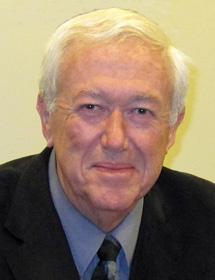
About
Keith Solomon is a professor emeritus in the School of Environmental Science and his work on the fate and effects of chemicals in the environment has resulted in unique national and international projects and aiding in the expansion of toxicology study at the University. He was one of the primary drivers of the development of the Toxicology Program at the University and the Network of Toxicology Centres, headquartered at Guelph from 1992 to 2011.
“If you had asked me as a young faculty member if I ever thought I would be flying over the jungle of South America in a helicopter with the doors open on the way to coca plots, you would have received a definite ‘No’.” – Keith Solomon
Keith became faculty at University of Guelph in the Department Environmental Biology in 1978, and was a long-time instructor of the course “Pesticides and the Environment”, educating hundreds of students about relationships of pesticides with the environment. Keith co-authored a book by the same name, which has been translated into Spanish and Portuguese and is used as a textbook at educational institutions across North America as well as the EU.
Much of Keith’s work in toxicology has examined the persistence of pesticides in aquatic systems, but a unique project in 2004 brought him to South America for an unusual assignment. The Organization of American States invited Keith and a research team to Colombia to examine the use of aerial herbicide application to control illegal production of cocaine. The work involved Keith and the team, helicoptering into coca plots, following the application of glyphosate, and conducting field studies with local species of amphibians. The results of the study determined that spraying glyphosate had few adverse environmental effects, but they found that the chemicals and practices used in the production of the coca were having a much greater impact on the environment. This latter part of the project was achieved with scientific input from students in the toxicology program at Guelph.
Today Keith is the director of the Centre for Toxicology on campus, a recognized GLP facility whose work meets the regulatory guidelines of nations around the world. Keith is also secretary and a member of the United Nations Environmental Programme’s Environmental Effects Assessment Panel. This panel reports to the Parties of the Montreal Protocol on the significance to human and environmental health of changes in ozone in the atmosphere.

Keith Solomon stands in front of an armoured helicopter in Columbia.
Posted on September 18, 2014